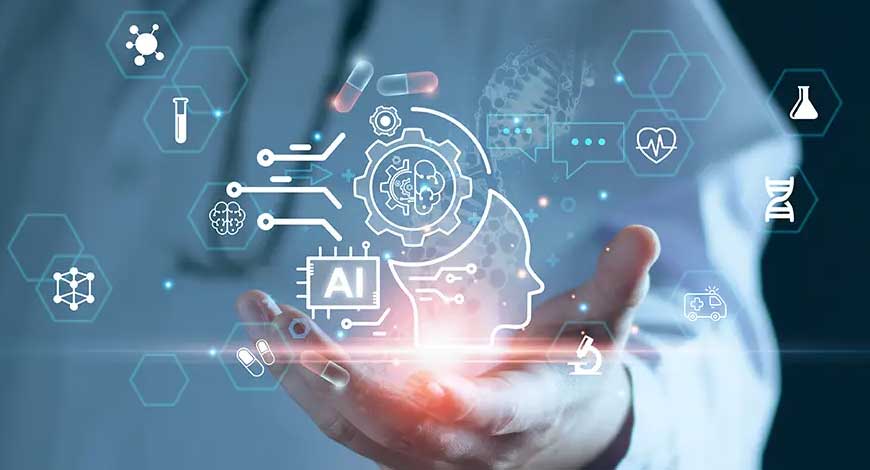Headlines of The Day
Indian hospital chains gradually adopting AI

Indian hospital chains are slowly turning to artificial intelligence (AI), with some even incorporating generative AI (GenAI). From diagnosis to discharge summary creation to real-time patient monitoring, major hospital chains are not only implementing AI into their systems but also sharing it with smaller hospitals as a new business model.
All major health care chains like Apollo Hospitals, Manipal Healthcare, and Aster DM Healthcare, among others, are utilising AI in prediction, prevention, diagnosis, and personalised management.
In Apollo’s case, it is introducing a new business model by sharing its AI technology with small nursing homes and hospitals through regional hubs.
“We have already implemented this GenAI technology, and it is in the testing phase. One of the incredible technologies that we have is in monitoring. Imagine, technology that could monitor every patient. In most Apollo hospitals, every single patient is monitored,” said Madhu Sasidhar, president, and chief executive officer of Apollo’s hospital division.
Through this, unanticipated declines in patient condition can be detected early.
“The business model of Apollo is that we don’t have to use it for only our patients. We make it available for other hospitals,” he added.
Apollo is investing extensively in AI/machine learning to establish new medical benchmarks. With tools like the AI CVD to predict cardiovascular disease risk, AI-enabled Apollo ProHealth platform, a symptom checker tool called Apollo Clinical Intelligence Engine (Apollo CIE), AI-integrated radiology and diagnostics workflow, and the AI-powered smart in-patient room automation system, it is expanding the reach of AI to all aspects of health care.
Some of these technologies have received patents and US Food and Drug Administration-level approvals as well.
From conversational AI to clinical applications, Manipal Healthcare is also making strides.
“We are using conversational AI to interact with our patients and families. In clinical areas, current applications include early alerts on patients who could require intensive care. We are also exploring its use in screening radiological images as a decision support process,” said Dilip Jose, managing director and chief executive officer, Manipal Healthcare.
Jose also mentioned that they are utilising it in applications like patient monitoring, as a screening tool in diagnostics, and in conversational AI. However, he emphasised the need to be careful in selecting which applications and use cases to deploy AI.
Interestingly, Aster DM Healthcare has established an AI Lab in association with the Indian Institute of Science. This AI Lab has developed AI Carpal Tunnel Syndrome (CTS) — a technology created by the neurology department that is poised to revolutionise nerve ultrasound diagnostics.
This technology redefines diagnosis and screens efficiently. It can identify the median nerve in ultrasound videos and detect CTS with the highest accuracy (95 per cent), marking a significant leap in health care innovation. The AI tool signifies a transformative stride towards precision and efficiency in CTS diagnosis.
“At Aster, we proudly stand at the forefront, seamlessly merging human expertise with AI to pioneer a new era of health care excellence. Our close collaboration with government bodies underscores our commitment to ethical AI practices, rigorous regulatory compliance, and the highest standards of data privacy and security,” said Nitish Shetty, chief executive officer, Aster DM Healthcare.
Tech aid
- All the major health care chains like Apollo Hospitals and Manipal Healthcare,among others, are using AI
- It helps them in prediction, prevention, diagnosis, and personalised management
- Big chains are sharing the process with smaller hospitals as a new business model
Business Standard












